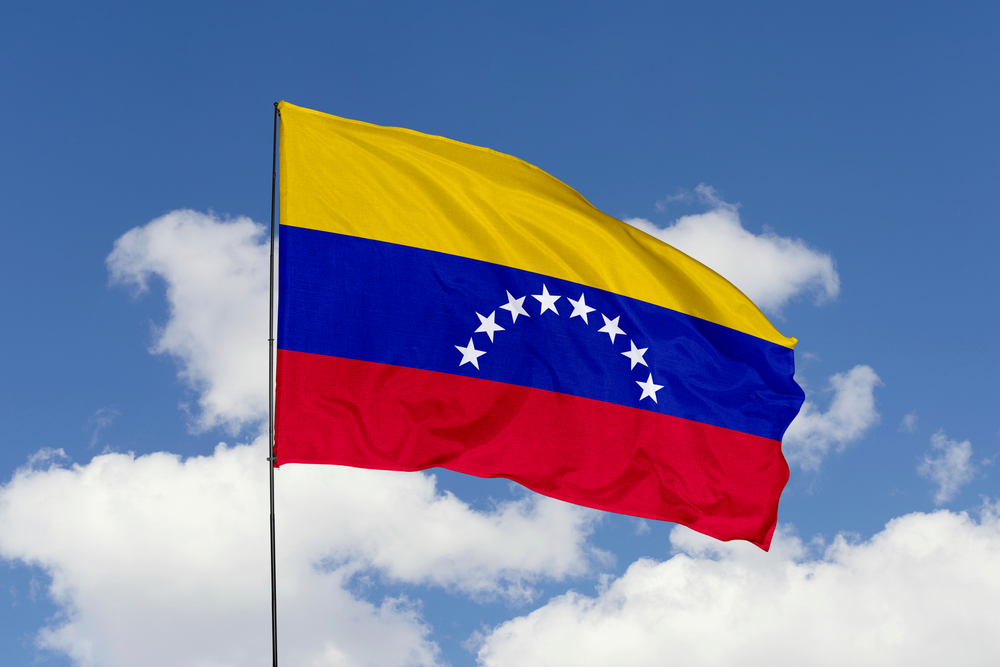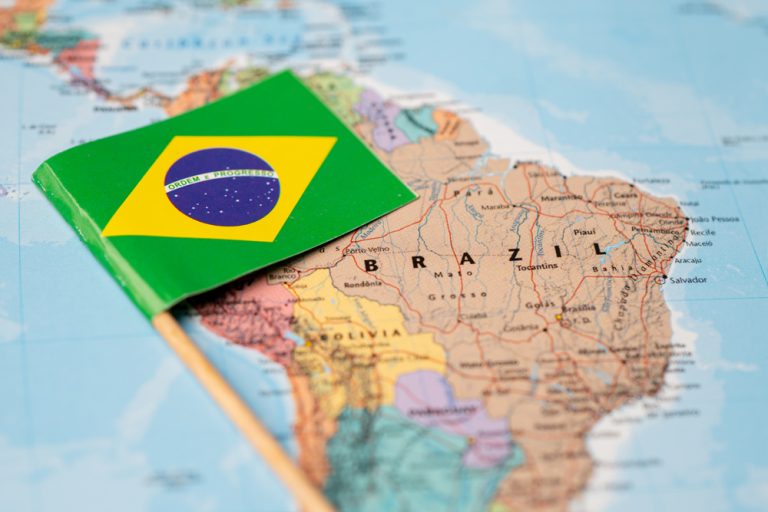
Biden seeking friendship with Maduro: the anatomy of an unnatural political alliance
On January 2, Venezuelan President Nicolás Maduro announced that his country is ready to normalize diplomatic relations with the United States. “Venezuela is ready, totally ready, to take steps towards a process of normalization of diplomatic, consular, and political relations with the current administration of the United States and with administrations to come,” said the once bitter American enemy to journalist Ignacio Ramonet. This declaration has been done in response to numerous signals and goodwill gestures from the White House, which began coming to the South American country as early as the fall of 2022. The relationship was severed in 2019, when the U.S. recognized the self-proclaimed president of Venezuela, Juan Guaidó, as legitimate, and Maduro’s own regime as usurper and anti-democratic. This is a kind of peace treaty, which may well be followed by a local, but very strong economic and political alliance.
Paradoxically, this alliance would look very strange and even unnatural. Yes, the friendship of the U.S. with the Venezuelan authorities, who have built their entire ideology over the past 20 years on a consistent leftist anti-Americanism, also hurts Venezuela´s image. Nevertheless, for a regime based on a dictatorship that does not really have a solid ideological base (as practice has shown, socialism turned out to be only a screen), there is no need to explain its behavior to its own population. The ruling Democratic Party in Washington, which for years has branded official Caracas as a tyranny, is quite another matter and will hold its liberal and progressive voters accountable for the abrupt changes in its foreign policy.

As early as November 26, on the path of “reconciliation”, the White House announced the resumption of trade relations with Venezuela and the U.S. oil company Chevron was given the right to produce oil in Venezuela and supply it to the U.S. for six months. Previously, it was the oil sector that had been the target of American attacks on uncooperative Venezuelans, and hit their economy hard, making the country one of the world leaders in terms of inflation (686.4% in January 2022). Initially, the Democrats didn’t want to frame themselves, so they tried to put tricky conditions on changing their oil policy. The U.S. persuaded the Maduro government to negotiate with the opposition, and the White House hoped to organize new elections in Venezuela involving the opposition, albeit not immediately, but in a foreseeable future. However, understanding his need and bargaining, the Latin American leader made no concessions, and the decision remained at the discretion of official Caracas. Not even Maduro was softened by the $3 billion from his frozen assets in the U.S. for humanitarian needs in exchange for “democratic reforms”. Especially since Washington officials traditionally behaved very brazenly and tried to get real resources from Venezuela in exchange for promises of “air locks” and imaginary “forgiveness”. The oil had to go to the U.S. not for money, but on account of Venezuelan debts, and for a long time this problem did not allow the treaty to become bilateral.
The Maduro government has already had a negative experience with “charity”: Venezuela had already delivered several tankers of oil for free to Europe in the summer of 2022, but quickly refused to continue, given the lack of benefit. The same effect worked with the November deal with the U.S., not to mention the fact that in the six months for which the agreement was designed, Chevron hardly managed to get its old oil fields working again and produce much oil. Nonetheless, at the time the Americans needed at least a fictitious success: the deal with Venezuela had more significance in the information sphere to calm the markets on the eve of the introduction of the oil price ceiling from Russia when additionally, the Middle Eastern monarchies refused to help the U.S. It was the position of Saudi Arabia and the UAE that forced Biden to take the humiliation to Caracas. Obviously, this decision was forced on the White House and hit hard the reputation of Biden, who had recently promised to go to war with the “autocracies”, but it was not the first time he went to bow to the opponents of the United States. At that time, the situation on the eve of the winter along with the energy crisis was so desperate, that for the sake of cheap gasoline it was no longer about decency.
Washington had to make concessions and the first victim was the Venezuelan democrats and liberals, for whom Biden had previously fought so hard. Against the background of the rapprochement between Washington and Caracas, the Venezuelan opposition was on the verge of splitting. The three main opposition parties in Venezuela (Justice First, Democratic Action and New Era), realized the betrayal and voted for the resignation of Juan Guaidó as head of the “interim government”. Formally, the opposition was unhappy with Guaidó‘s inability to bring about a change of power in the country. In three years, his ratings have plummeted from 60% to 15%. While in 2019 Guaidó brought hundreds of thousands of supporters to the streets, now even the Venezuelan opposition refuses to recognize him as their leader. At the same time, Guaidó declares that he will certainly go to the next presidential election in 2024. Despite the collapse of his support and friendship with Maduro, Washington and London still recognize Guaidó as the “leader of Venezuela,” although the EU, for example, has already stopped any contact with him.
Apparently, Guaidó’s victory is no longer needed in Washington, and he will only imitate the struggle to appease American public opinion. The White House began to negotiate directly with official of Caracas, bypassing the Venezuelan opposition, and by January Maduro appreciated this sacrifice. Eventually, the White House was able to reach an agreement on Venezuelan oil supplies to the U.S., and the Biden administration promised to unfreeze some Venezuelan assets without any “political conditions”. In an act of desperation, the opposition now intends to create a “board of directors” on behalf of which it will demand that the U.S. hand over all Venezuelan foreign assets to them. Obviously, this fight for budgets is related to the discord in the ranks of the opposition. The chances of success are also not great, because the timing is very unfortunate as in the current energy crisis, the U.S. urgently needs Venezuelan oil. In such circumstances, between the “holy” opposition and the “evil” Maduro, Washington will obviously choose the latter.

Besides, the change in Washington’s policy is not limited to Venezuela alone and is systemic since the U.S. is adjusting in general its policy towards Latin America against the backdrop of leftist politics. Washington plans to continue putting pressure on Caracas, demanding the next election with the opposition, but if it loses again and the U.S. continues to need Venezuelan oil, Biden may well already recognize Maduro as a legitimate president. The change in approach is also observed with Mexico, which is also one of the most problematic countries in Latin America for Biden since Mexico is now actively trading with China and Russia, while criticizing the policies of the White House. In return, the U.S. accuses Mexican President López Obrador of dictatorship and believes that Mexico could become a new Venezuela.
However, amid a massive migrant crisis on the U.S. southern border, Biden must persuade Mexico to help stem the flow of illegals. The number of migrants who have crossed U.S. borders during Biden’s presidency has already exceeded 5 million, and even his liberal approach is challenging. Now some of them will begin to be deported to Mexico, which, ironically, Trump has already done during his presidential time. Latin America has grown strongly in recent years, which is a two-fold phenomenon: the left is always anti-American, but many of them are more acceptable to Biden than the near-Republican right, such as Brazil’s ex-president Bolsonaro. In this complex political environment, Washington is forced to respond and puts its own ideology at risk. The motto of the Biden presidency has been to preserve the dwindling status quo in the world but there are a lot of problems now, where changes of policies are needed when it is important to the U.S. even if it can sacrifice the ideal values of “freedom and democracy”. Whether this will stop Latin America’s gradual drift out of the U.S. sphere of influence remains a question and for his part, Biden has already gone to all in.


Average Rating